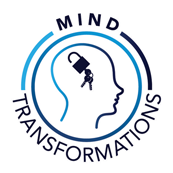Counseling Services
Everyone has a range of normal healthy emotions. Ups and downs are a part of life, but sometimes people need help navigating through the tough times. I always feel honored when I provide this service.
You and your mental health are our top priority. For your comfort and peace of mind, counseling services are offered in office, via telehealth, at your home, or at another suitable location chosen by you. For example, you may prefer to meet in a private room at your local library or while we take a walk at your favorite park.
By blending my psychological training and my medical (EMT and Recreation Therapy) background into a holistic approach, I’m able to facilitate positive lifestyle changes by creating safe, nurturing situations in which many aspects of mind and body can be addressed at once.
My approach to therapy is best described as brief, person-centered, solution-focused therapy. I do draw from a range of psychological/behavioral theories, tailoring my approach to the unique needs of each individual client. More specifically, I synthesize aspects of the following approaches as needed:
Motivational Interviewing
This is not so much an approach as it is a way to talk with people. It works with an individual’s ambivalence and resistance to increase their motivation for change in areas in which they desire change.


Attachment theory
This approach considers the quality of one‘s current intimate relationships and explores how emotionally secure one felt in early relationships with parents. Attachment theory provides a useful framework for psychotherapy because it can pinpoint vulnerabilities in relation to self and others and help clients gain insight into dysfunctional patterns of relating. Attachment theory‘s emphasis on the importance of secure relationships is relevant to therapy as well, since establishment of a trusting and secure connection between client and therapist is the necessary foundation for successful therapy.
Cognitive-behavioral theory
This approach is very useful when clients need tools and strategies to interrupt negative thought patterns and behaviors. Cognitive therapy includes looking at one‘s internal dialogue, seeing where thought patterns may be self-defeating, and shifting these patterns to more optimal and self-nurturing ways of thinking. By helping you become aware of inaccurate or negative thinking, cognitive behavioral therapy allows you to view challenging situations more clearly and respond to them in a more effective way.


Existentialism
This approach believes that humans have free will, that decisions are not made without stress and consequences, and that each person is responsible for their actions. The belief is that people are searching to find out who and what they are throughout life as they make choices based on their experiences, beliefs, and outlook. Its human dimensions include a capacity for self-awareness, freedom, and responsibility; creating one’s identity and meaningful relations with others; the search for meaning, purpose, values, and goals; and anxiety and awareness of death.
EMDR (Eye Movement Desensitization and Reprocessing)
This is a psychotherapy that enables people to heal from the symptoms and emotional distress that are the result of disturbing life experiences. The therapy is an eight-phase treatment. Eye movements (or other bilateral stimulation) are used during one part of the session. After the clinician has determined which memory to target first, the client is asked to hold different aspects of that event or thought in mind and to use their eyes to track the therapist’s hand as it moves back and forth across the client’s field of vision. As this happens, for reasons believed by a Harvard researcher to be connected with the biological mechanisms involved in Rapid Eye Movement (REM) sleep, internal associations arise and the client begins to process the memory and disturbing feelings. In successful EMDR therapy, the meaning of painful events is transformed on an emotional level. For instance, a rape victim shifts from feeling horror and self-disgust to holding the firm belief that, “I survived it and I am strong.” Unlike talk therapy, the insights clients gain in EMDR therapy result not so much from clinician interpretation, but from the client’s own accelerated intellectual and emotional processes. The net effect is that clients conclude EMDR therapy feeling empowered by the very experiences that once debased them. Their wounds have not just closed, they have transformed. As a natural outcome of the EMDR therapeutic process, the client’s thoughts, feelings and behavior are all robust indicators of emotional health and resolution—all without speaking in detail or doing the homework used in other therapies.
You will find that therapy often requires discussing the unpleasant aspects of your life. It may not always feel comfortable. However, therapy has been shown to have benefits for those individuals who undertake it. Therapy often leads to a significant reduction in feelings of distress, increased satisfaction in interpersonal relationships, greater personal awareness and insight, increased skills for managing stress, and resolutions to specific problems. But, there are no guarantees about what will happen. Therapy requires a very active effort on your part. In order to be most successful, you will need to do homework outside of sessions on things that we discuss in our sessions. You’ll find that you get out of it what you put into it.


Support Groups
We offer several adult and adolescent therapy groups at different times during the week. Through the use of an interpersonal approach, clients are given the opportunity to both give and receive feedback with regard to their issues and concerns. If you believe that you could benefit from a therapy group, please contact us to schedule an initial intake evaluation. All groups are by invitation only; they are closed to the general public. Topics may include navigating relationships, emotional regulation, grief and loss, LGBTQ+, and mindfulness.
